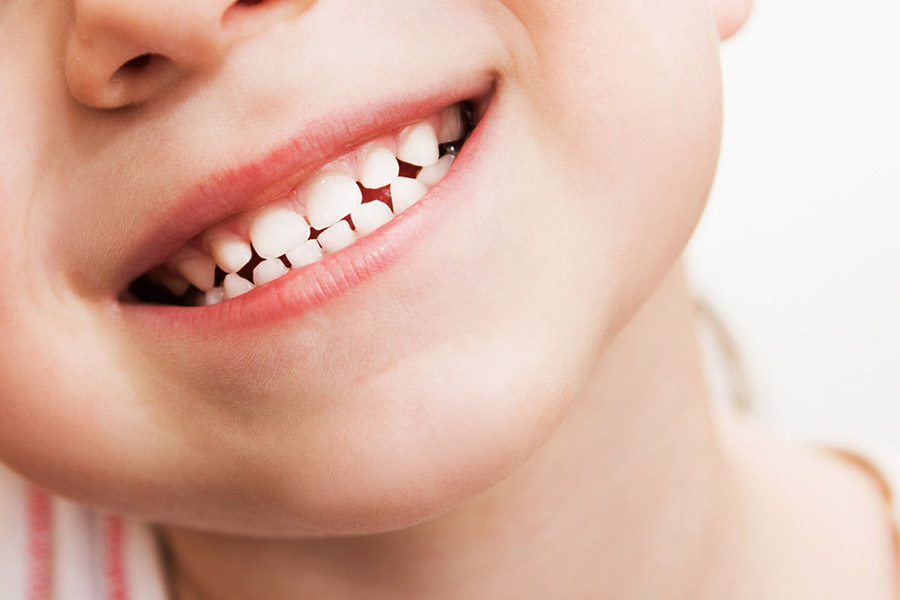
What is the significance of milk teeth?
Primary teeth (baby teeth or milk teeth) are the set of 20 teeth which children get initially in preparation for having adult teeth. These teeth are very important for maintaining good nutrition as:
At birth the crowns of 20 “baby” or primary teeth are almost completely formed and they are hidden from view in an infant’s jaw bones. These gradually erupt through gums during the first two-and-a-half years of life, with the lower front teeth usually erupting first at around six months. By the time the child is three years old almost all 20 teeth are present in the mouth. When teeth first come in, some babies may have sore or tender gums. Gently rubbing your child’s gum with a clean finger, a small cool spoon or a wet gauze pad may be soothing. You can also give your child a clean teething ring to chew.
What are the drawbacks of negligence of oral hygiene in baby teeth? Baby teeth usually get cavities due to negligence in maintaining proper oral hygiene. Since they are much smaller than permanent teeth, it does not take long for a cavity to become very large and destructive. If left untreated cavities can cause pain and infection of the gums and jaws that can lead to the need of the tooth to be pulled out. Tooth decay in infants and toddlers sometimes is called early childhood caries, baby bottle tooth decay or nursing mouth syndrome. It occurs when child’s teeth are exposed frequently to sugary liquids for long periods. When baby teeth are lost too early, the permanent teeth can drift into the empty spaces and make it difficult for other adult tooth to find room when they come out. This can make the teeth crooked or crowded or may even prevent the adult teeth from having position to come in at all. That is why having a dental checkup done as early as the first tooth appears in the mouth, and following the instructions of the dentist to maintain good oral hygiene allows to maintain the teeth until they are naturally replaced by the permanent set of teeth. ADA recommends that a dentist examine the child within six months after the first tooth comes in and no later than the first birthday.
What care should be taken to maintain oral hygiene in infants and toddlers?
It’s important to care for your babies’ teeth from the start, here’s what to do:
• Never allow your infant or toddler to fall asleep with a bottle containing milk, formula, fruit juices or sweetened liquid.
• Don’t dip a pacifier in sugar or honey.
• If your baby needs a comforter between regular feedings or bedtime, give the child a clean pacifier.
• Wipe your child’s gums with a wet wash cloth or a clean gauze pad after feeding.
• Begin brushing your child’s teeth with a little water as soon as the first tooth appears.
What is the right age for children to start brushing their teeth? How much is the safe quantity of fluoride tooth paste for the child?
• For children younger than three years, caregivers should begin brushing the child’s teeth by using fluoride toothpaste in an amount no more than a smear or the size of a grain of rice. Brush teeth thoroughly twice per day. Supervise their brushing and remind them not to swallow the toothpaste.
• For children three to six years of age, use pea-sized amount of fluoride tooth paste. Brush teeth thoroughly twice per day. Supervise their brushing and remind them not to swallow the toothpaste.
• Until you are comfortable that your child can brush on his/her own, continue to brush their teeth.
[email protected]
Dr Litty Varghese is dentist at Al Burjeel Hospital.